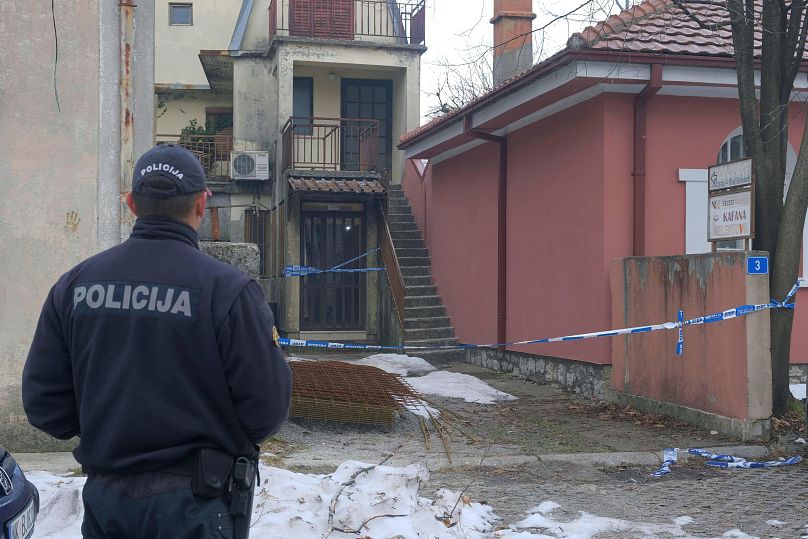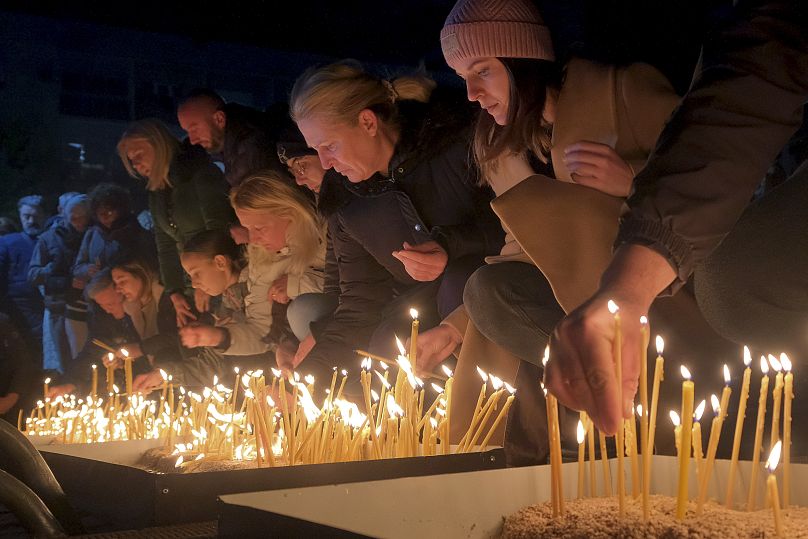State television broadcaster RTCG reported that Montenegro is sixth in the world when it comes to the number of illegal weapons per capita.
A top-level meeting in Montenegro has begun to look for ways to curb illegal weapons after a gunman shot and killed 12 people in the second such tragedy in less than three years in the small Balkan country.
 ADVERTISEMENT
ADVERTISEMENT
 ADVERTISEMENT
ADVERTISEMENT
An emergency session of Montenegro's National Security Council is expected to call for a new gun law and urgent actions to confiscate what are believed to be abundant illegal weapons in possession of Montenegro's 620,000 citizens.
The Adriatic Sea nation has a deeply-rooted gun culture. State television broadcaster RTCG reported that Montenegro is sixth in the world when it comes to the number of illegal weapons per capita.
The gunman who killed a dozen people in a shooting rampage in the western town of Cetinje on Wednesday did so with an illegal 9mm gun.
Police have said they found 37 casings at the shooting locations and more than 80 additional pieces of ammunition in the gunman's possession.
The 45-year-old man, identified as Aco Martinović, eventually shot himself in the head and died shortly after.
He is believed to have snapped after a bar brawl and went home to get his weapon before launching a bloody rampage at several locations late on Wednesday afternoon.
Martinović's victims included seven men, three women — among them his sister — and two children. Four more people were seriously wounded and remain in hospital.
Police Commissioner Lazar Šćepanović described the shooting as "one of the biggest tragedies in the history of Montenegro."
It's fuelled concerns about the level of violence in Montenegrin society, which is politically divided.
It also raised questions about the readiness of state institutions to tackle the problems, including gun ownership.
Hundreds of people throughout Montenegro lit candles in silence on Thursday evening in memory of the victims, while also calling for answers as to why the shooting happened in the first place.
Many were angry at the authorities for not doing more to prevent such tragedies.
About 200 people protested outside government headquarters in Podgorica on Friday, demanding the resignations of top security officials over the tragedy and chanting "murderers."
Mira Škorić, a retiree from Podgorica, said that "I can't believe that we failed so much as a society. We failed as people too."
2022 Cetinje massacre
In a separate massacre in August 2022, an attacker killed 10 people, including two children, before he was shot and killed by a passerby in Cetinje, which is Montenegro's historic capital and is located about 30 kilometres northwest of the capital, Podgorica.
The shootings "require a serious examination of the responsibility and preparedness of the security system," the Human Rights Action and Women’s Rights Centre groups said in a statement.
"What has changed in the security system in Cetinje since 2022?"
Police have said that Martinović's actions weren't planned and were impossible to predict and prevent, though he had been convicted in the past for violent behaviour and illegal weapons possession and had received psychiatric treatment.
Vesna Pejović, a Cetinje resident who lost her daughter and two grandchildren in the 2022 shooting, said police had to do more to protect the citizens after the first killing.
"What kind of state and system is this where children are getting killed? Are we at war?" she asked. "Where were the police?"












